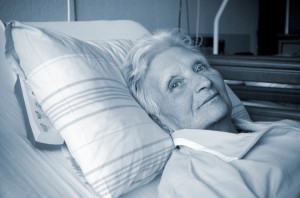Respect Your Elders-Tips for Keeping Loved Ones Safe in Nursing Homes
I knew that I was taking a risk when I left my job working as an attorney for big insurance companies and large corporations. I knew that I was potentially leaving a very lucrative position to fight for i ndividuals, but I also knew that for me, it was the right thing to do.
ndividuals, but I also knew that for me, it was the right thing to do.
I take great pride in fighting for those that have been taken advantage of and who have fallen victim to the negligence, malpractice and even sometimes malice of others.
Since starting my own practice, I have heard thousands of heart-wrenching stories from thousands of different families. Stories of medical malpractice, wrongful death, birth injuries- the list is long.
But, one of the most heart breaking areas that I practice in is for nursing home abuse and negligence.
If you aren’t familiar or aware of this epidemic sweeping the nation, you should be. As Baby Boomers begin to age into their twilight all at once, more and more families are relying on nursing homes and other nursing facilities to take care of their loved ones. As demand for nursing homes and elder care has risen, so has the opportunity for a myriad of physical, emotional sexual abuse, and financial exploitation.
Some of the things I have heard would rip your heart out.
We hear stories from families of their parents and grandparents being beaten, stolen from, and neglected to the point of contracture. If you are not familiar with contractures, it is when a person isn’t moved in so long that their muscles and joints seize up, rendering them almost useless. These abuses are just the tip of the iceberg.
You wouldn’t believe I hear from some families. It is difficult to even imagine what some nursing homes put the elderly through. This is why I work tirelessly to educate people about what signs of abuse to look for and what to do if they suspect abuse or neglect.
Some warning signs to watch for include:
- Bedsores, especially advanced ones, are a sign of neglect
- Broken bones, burns, bruises, sprains or cuts that have no logical explanation may indicate a pattern of physical abuse
- Entrapment in bed rails or a fall from a bed should not happen in a supervised facility
- If the joints are frozen, it could mean that the resident was neglected and not moved
- Unexplained sexually transmitted diseases or torn, stained and bloody underclothing may be an indicator of sexual abuse
I think we are often too trusting when choosing a hospital or nursing home. Many times, we just assume that they are always looking out for our best interests. Sadly, that is not always the case. There is an old saying, “an ounce of prevention is worth more than a pound of cure.” This is why it is so important to do your due diligence when vetting nursing homes. It is much better to spend your time choosing the most reputable and safe place for your loved one than to experience the alternative.
often too trusting when choosing a hospital or nursing home. Many times, we just assume that they are always looking out for our best interests. Sadly, that is not always the case. There is an old saying, “an ounce of prevention is worth more than a pound of cure.” This is why it is so important to do your due diligence when vetting nursing homes. It is much better to spend your time choosing the most reputable and safe place for your loved one than to experience the alternative.
Always ask the following questions when looking for a nursing facility:
- What is the resident to staff ratio at your TX nursing home? What is the registered nurse to resident ratio? Is there a doctor on call at all times?
- What are the requirements to become a staff member here, and what kind of training do staff members receive?
- What do your nursing home residents do in between scheduled activities?
- What precautions do you take to ensure that your residents receive their proper medications at the proper time and in the proper amounts?
- What precautions do you take against nursing home elopement?
- Does my loved one’s family get to participate in creating his or her care plan?
- What is your policy on using physical restraints?
- Are patients with dementia separated from other patients? Are staff members trained to work with those with dementia?
- What is your nursing home’s emergency response plan?
- Has your nursing home ever been investigated for nursing home abuse or neglect? If so, what were the circumstances and what was your home’s response?
- How do you decide when to inform a family member of a change in my loved one’s condition or behavior?
If you have suspected that your loved one is a victim, immediately take steps to protect them and hold those responsible accountable for their actions. Our elderly deserve to live out the end of their lives comfortably, let us all do our part to put an end to this horrifying epidemic.
Category: Lawyer's Advice






